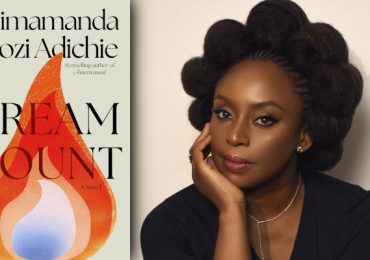Jonathan Ball Publishers has shared an extract from Anna Burns’s novel Milkman, which was recently awarded the 2018 Man Booker Prize.
Milkman is a tale of gossip and hearsay, silence and deliberate deafness. It is the story of inaction with enormous consequences.
Read an excerpt from Milkman:
THREE
Third time of the milkman was when he appeared not long after my adult evening French class. This class was downtown and it had surprising things. Often these would not be French things. Often too, there would be more of them than would be the French things. At this latest lesson, which took place on Wednesday evening, teacher was reading from a book. This was a French book, a proper French book – one that native speakers could read without considering it beneath them – and teacher said she was reading from it to get us used to what authentic French sounded like when strung together in full-on passages – in this case, a literary passage. Thing was though, the sky in this passage she was reading from wasn’t blue. Eventually she got interrupted because someone in the class – spokesperson for the rest of us – naturally couldn’t stand it. Something was wrong and he had a need, for the sake of all things generic, to point it out.
‘I’m confused,’ he said. ‘Is that passage about the sky? If it is about the sky then why doesn’t the writer just say so? Why is he complicating things with fancy footwork when all he need say is that the sky is blue?’
‘Hear! Hear!’ cried us or, if some of us, like me, didn’t cry it, certainly we agreed in sentiment. ‘Le ciel est bleu! Le ciel est bleu!’ shouted many of the others. ‘That would have cleared matters. Why didn’t he just put that?’
We were disturbed, and not a little, but teacher, she laughed which was something she did a lot. She did this because she had an unnerving amount of humour – another thing which ruffled us as well. Whenever she laughed, we weren’t sure whether to laugh along with her, to be curious and engaged and to ask why she was laughing, or to be sulky and offended and seriously up in arms.
This time, as usual, we opted for up in arms. ‘What a waste of time and a confusion of subjects,’ complained a woman. ‘That writer ought not to be featuring in a French lesson even if he is French if he’s not doing anything about teaching it. This is “learning a foreign language” class, not a class on burdening us with taking things apart which are in the same language to find out if they’re a poem or something. If we wanted figures of speech and rhetorical flourishes, with one thing representing another thing when the represented thing could easily have been itself in the first place, then we’d have gone to English Literature with those weirdos down the hall.’ ‘Yeah!’ cried us and also we cried, ‘A spade’s a spade!’, also the popular ‘Le ciel est bleu!’ and ‘What’s the point? There’s no point!’ continued to come out of us. Everyone was nodding and slapping desks and murmuring and acclaiming. And now it was time, we thought, to give our spokespeople and ourselves a jolly good round of applause.
‘So, class,’ said teacher after this applause had died down, ‘is it that you think the sky can only be blue?’
‘The sky is blue,’ came us. ‘What colour else can it be?’
Of course we knew really that the sky could be more than blue, two more, but why should any of us admit to that? I myself have never admitted it. Not even the week before when I experienced my first sunset with maybe-boyfriend did I admit it. Even then, even though there were more colours than the acceptable three in the sky – blue (the day sky), black (the night sky) and white (clouds) – that evening still I kept my mouth shut. And now the others in this class – all older than me, some as old as thirty – also weren’t admitting it. It was the convention not to admit it, not to accept detail for this type of detail would mean choice and choice would mean responsibility and what if we failed in our responsibility? Failed too, in the interrogation of the consequence of seeing more than we could cope with? Worse, what if it was nice, whatever it was, and we liked it, got used to it, were cheered up by it, came to rely upon it, only for it to go away, or be wrenched away, never to come back again? Better not to have had it in the first place was the prevailing feeling, and that was why blue was the colour for our sky to be. Teacher though, wasn’t leaving it at that.





